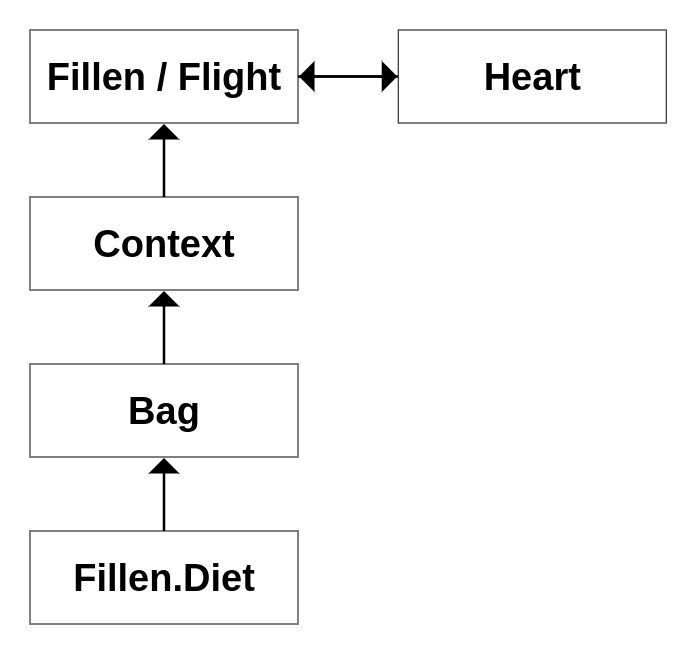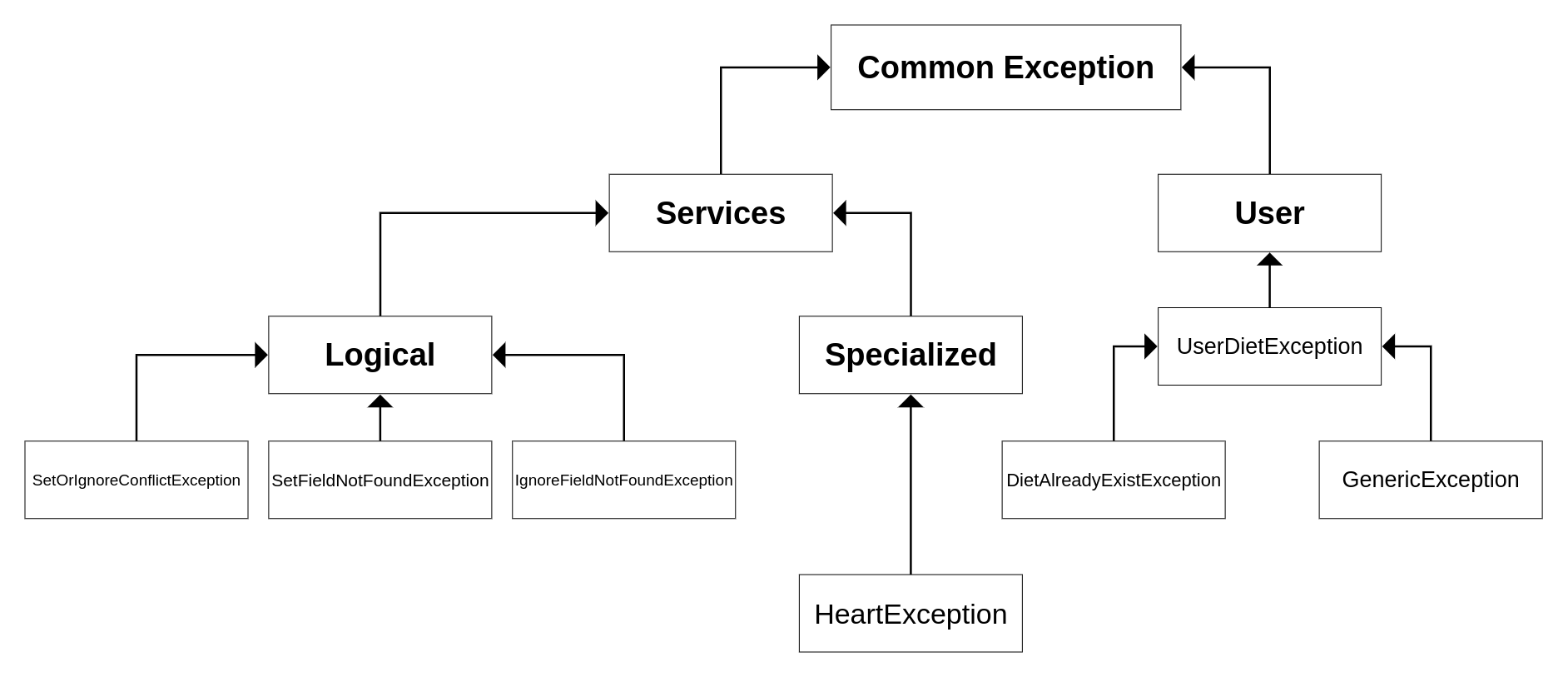The name Fillen is a play on the words Filler and Filin, it would be possible to add another letter 'l' to this name to get Filllen, but let's not chat on the post
Why do I need this library? The original purpose of this bible library was to fill in the fields of sufficiently complex classes for testing them at work, but now I can confidently say that these goals can be greatly expanded. For example, you can use this library for more convenient, simple and structured processing of classes and their fields, you can check fields for annotations, data types, access modifiers, generalized types, etc. This will probably allow you to create your own tools, which I am sure will help no generation of programmers yet ;)
Individual application examples can be viewed in the tests
<repositories>
<repository>
<id>jitpack.io</id>
<url>https://jitpack.io</url>
</repository>
</repositories>
<dependencies>
<dependency>
<groupId>com.github.lemerch</groupId>
<artifactId>fillen</artifactId>
<version>v1.0</version>
</dependency>
<dependencies>You can also build it through GitHub Package, see
Apache License Version 2.0
Did you know how owls differ from filins? I confess honestly and I didn't know the answer to this question myself until recently. Both of these species belong to the order of owls. Unlike owls, filins are their biggest representatives. Filins are nocturnal predators. His diet is more varied.In reality, filins are born in a strong family, whose parents will be with them until they grow up to independent life. And even after that, the parents will not fly away forever, but will live in the same territory. Yes, filins are exemplary family men)
The path our filin begins with constructor that accept diets.
import static com.github.shakal76.fillen.basic.api.base;
Fillen fillen = new Fillen(base);Unlike real filins, ours prefers different javabeans classes (default constructor, setters), which of course he will be able to see, otherwise he will either skip a piece of it (the class field) or ignore it (make it null).
import static com.github.shakal76.fillen.basic.api.base;
Fillen fillen = new Fillen(base);
MyClass my = fillen.dinner(MyClass.class);
my.getSomeField();
...NOTICE - if the field of your class is an array, list or others... and its final type is ignored, then the array itself will be initialized, but its first element will be null.
But why can Fillen not notice a 'piece of food'? - The thing is that he is limited by his diet)
I think the most interesting feature of filins is their eyesight. They eyes are very large and look straight ahead, according to the position of the eye sockets on the front side of the facial parts of the skull, that is, an filin cannot move its eyes like a human. The eyes of filins stand motionless in place throughout their lives. The world appears to filins in black and white. Contrary to the popular belief that filins do not see anything during the day, the eyes of filins are not so sensitive to daylight; an filin, for example, sees perfectly during the day even at a great distance. With age, they change their color from light yellow to dark orange.Fillen also has a heart that you can't see, but which sees you, and, moreover, you can customize it for yourself.
To do this, you just need to make a menu for our filin. Initially, the owl does not have any diet, but you can create it yourself or use the basic one.
Basic diet support types: string, byte, short, int, long, float, double, boolean, char - that the value of which will be random. And array, list, set, queue and any implementation of Collection interface.
To diversify his diet and thus adjust his vision, you can use the abstract class Fillen.Diet, where there is only one method not implemented - Object menu(Object),
where you can tell the Fillen how to process new data types. At the entrance, you will receive the ingredients class, which contains information about the field. To get the data type of the passed field, you can refer to it as ingredients.type. For the convenience of verification, you can use the built-in isTypesEquals(one, two) method. By implementing this class, you will get the corresponding object that should be placed in the constructor of our filin.
Fillen.Diet diet = new Fillen.Diet() {
@Override
public Object menu(Ingredients ingredients) throw UserDietException {
if (isTypesEquals(ingredients.type, BigDecimal.class)) {
return new BigDecimal(123);
}
// ye, it's safety :)
return null;
}
};
Fillen fillen = new Fillen(diet);
...Yes, in case you don't know what type of data the Fillen is transmitting to you, you can safely pass null If an earlier handler defined the type, then your handler will not override its value.
In addition, you can redefine already existing diets. The override system works quite simply.
If you have created several diets and they have been dropped into the bag, then the last diet from it will have priority.
If you have created too many diets and you need to hand them over to the Fillen in a nice way, then Bag can help you with this.
Bag bag = new Bag();
bag.add(firstDiet);
bag.add(otherDiet);
Fillen fillen = new Fillen(bag);NOTICE - bag can't have more than one type of diet
Also, if you want to get or remove a diet by its type - try this:
Bag bag = new Bag();
bag.add(firstDiet);
bag.add(otherDiet);
bag.get(otherDiet.getClass());
bag.remove(otherDiet.getClass());
Fillen fillen = new Fillen(bag);-
Class<?> type
-
String name
-
Generic generic
-
Annotation[] declaredAnnotations
-
int modifier
But its important feature is that all these fields are immutable, even though there are setters in this class, they will not change the current object, but create a new one based on an existing one with the value you changed.
What should I do if I need to add processing of an internal type whose fields also need to be processed, in which case we have a method available only inside Fillen.Diet - dinner, just pass it the appropriate type
You can also create such logical handlers - you can see more information about this here
Phew, well, let's get some rest
Sometimes in life we need to think. Often we like to complicate a lot for no apparent reason. And that's why sometimes we should stop and think.In many cases, we can simplify our lives if we use one small but very useful method - fillen.set(String fieldName, Object value)
MyClass my = fillen.set("myFieldName", 123)
.dinner(MyClass.class);
...NOTICE - it will be performed on top of all diets.
Filins sleep an average of 10-12 hours a day. They try to choose a place to spend the night away from interference and often high up in the branches of trees.
To give our Fillen a little rest, we need to use the ignore(String... fieldNames) method.
and it is best to do this during the flight:
Flight flight = fillen.ignore("firstFieldName", "otherFieldName");
Example example = flight.dinner(Example.class);
...Why do we need to 'fly'? - This property can be extremely useful, as we separate our diets from our 'simplifications', which leads to greater mobility of use.
In addition, if you ignore the field, then the presence of a setter is optional
If you use the same fields for set and ignore it will inevitably lead to a conflict - SetOrIgnoreConflictException
But time goes by, days pass and one day we will have to leave. No matter how difficult it is to accept, but our filin ends up in the `Converter` class.
new Converter().bind("a", "b")
.fromto(myObject, Example.class);NOT IMPLEMENTED YET
First, try to separate Fillen.Diet classes by meaning.
Secondly, when you have a lot of diets and you need to combine them, create a class with a static public field of your api, inside which you can use the built-in connector method. Here is an example of such an api:
public final class api {
public static final Fillen.Diet base = new Fillen.Diet() {
@Override
public Object menu(Ingredients ingredients) throws UserDietException {
return connector(ingredients, new RandomDiet(), new CollectionDiet(), new ArrayDiet());
}
};
}Quite often we need to work with nested types, so for example recursion is used to create containers (arrays, lists...). For these purposes, we have a seeback method that will re-call ALL the diets that you have invested in Fillen
public Object menu(Ingredients ingredients) throws UserDietException{
if(getAllInterfaces(ingredients.type).contains(Collection.class)){
Collection result=collectionGenerate(ingredients.type);
Generic newGeneric=ingredients.generic.next();
Object callback=seeback(
ingredients.setType(ingredients.generic.get().get(0))
.setGeneric(newGeneric)
);
if(callback.getClass().isAssignableFrom(FillenList.class)){
result.addAll(((FillenList)callback).getList());
}else{
result.add(callback);
}
return result;
}
return null;
}All collection implementations are processed here. But in addition to seeback method, there are a few more interesting points here. The first is a Generic object, with which you can handle generic types. It supports two models - procedural (do you just take List<Class<?>> through the get method and process) | for arrays use ingredients.type.getComponentType and recursive (the next method simply removes the first cell from the internal list)
The second very important thing that I ask you to pay attention to is the FillenList type. If you use this type in the class that you will process, the dinner method will return an exception to you. This type is needed just for processing in containers. Any diet can create this list if it has several candidates for the result. If such a list is not processed in another handler, then Fillen will take only the first element from it.
So yes, you can return something similar in your diets:
@Override
public Object menu(Ingredients ingredients) throws UserDietException {
if (isTypesEquals(ingredients.type, String.class)) {
List<String> list = new ArrayList<>();
list.add("FIRST");
list.add("SECOND");
FillenList wrapper = new FillenList();
wrapper.setList(list);
}
}Imagine a situation, your class contains a type field of your other class. In addition, you often use ignore, set and other methods. I.e. you need a way to call dinner with a contest that is currently loaded into your diet. Don't worry, we have a built-in dinner method in Fillen.Diet for this:
@Override
public Object menu(Ingredients ingredients) throws UserDietException{
if(isTypesEquals(ingredients.type, OtherPojo.class)) {
return dinner(ingredients.type);
// or so: return dinner(OtherPojo.class);
}
}Well, the last thing I want to say here is exception handling - you can manipulate or create subtypes of UserDietException.
- add threading tests
- add class converter?
- fix restedChecker
- fix Bag comparablity for Diets
- add to Bag method swap
- add debug into Bag or Heart
Filins color - #53F4CC











